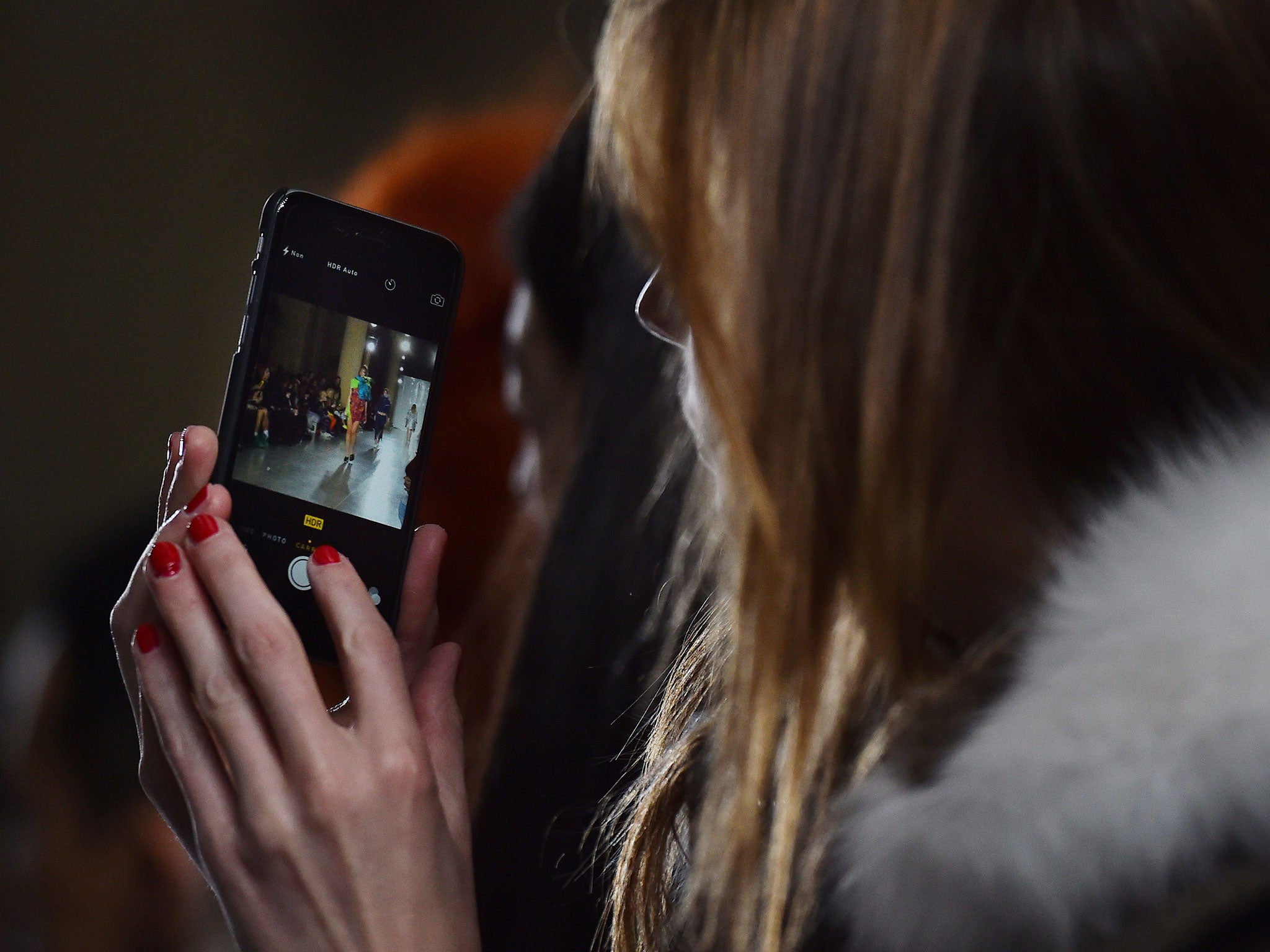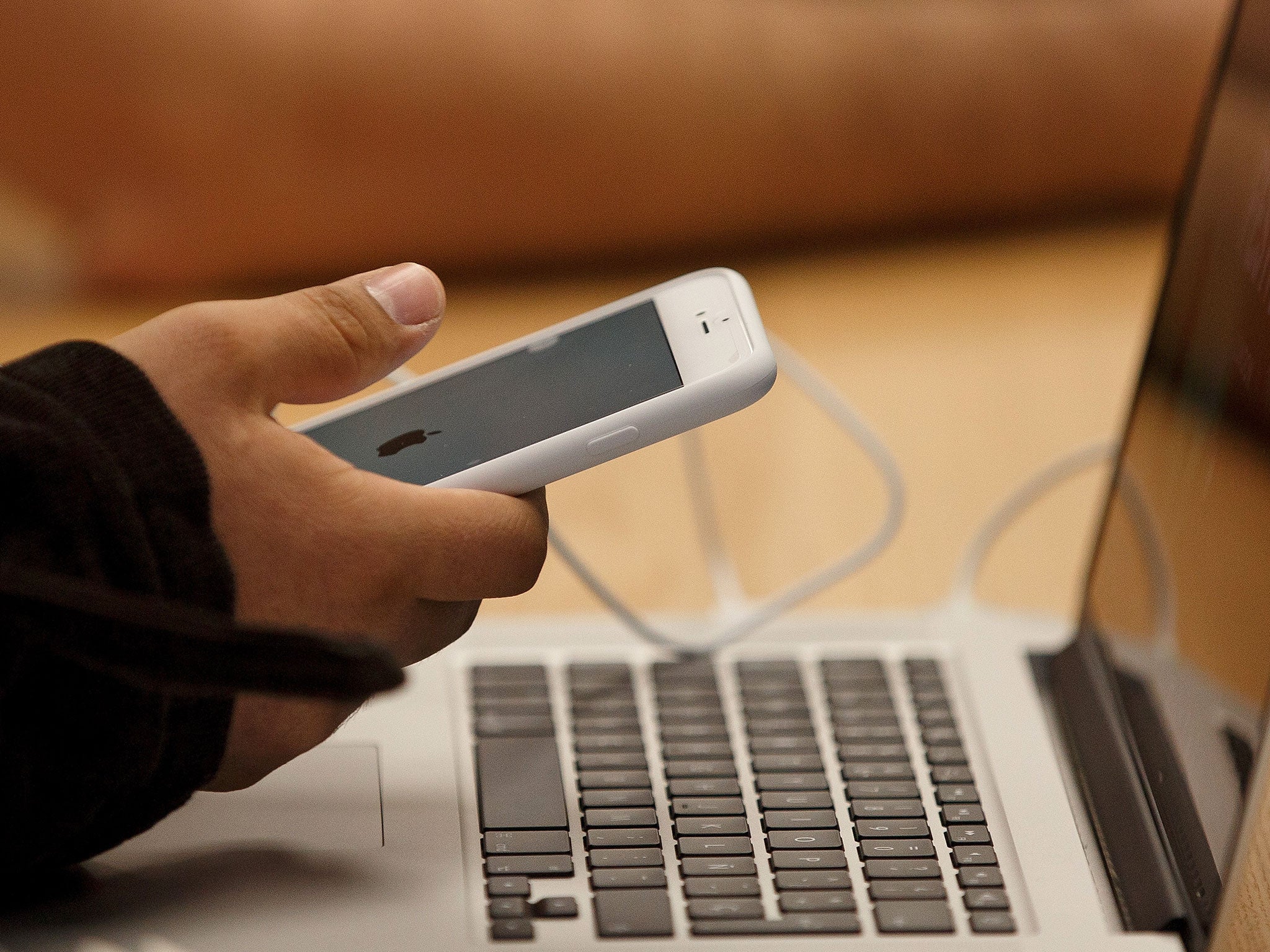Smartphones : I’m dependent, but is it so app-alling?
They have wormed their way into every part of our lives – but never mind the scare stories, enjoy the buzz


Your support helps us to tell the story
From reproductive rights to climate change to Big Tech, The Independent is on the ground when the story is developing. Whether it's investigating the financials of Elon Musk's pro-Trump PAC or producing our latest documentary, 'The A Word', which shines a light on the American women fighting for reproductive rights, we know how important it is to parse out the facts from the messaging.
At such a critical moment in US history, we need reporters on the ground. Your donation allows us to keep sending journalists to speak to both sides of the story.
The Independent is trusted by Americans across the entire political spectrum. And unlike many other quality news outlets, we choose not to lock Americans out of our reporting and analysis with paywalls. We believe quality journalism should be available to everyone, paid for by those who can afford it.
Your support makes all the difference.How long could you live without your smartphone? A week? No chance. A day? Oh God. An hour? Well OK, if I must. Most of us know that sinking feel of having left our phone at home, specifically the panic that comes with wondering, “What if the childminder calls?” or “How will I Instagram my lunch?”
There are those who believe our umbilical attachment to smartphones signifies the end of days. Earlier this year, the historian Simon Schama bemoaned the “look down” generation, the types who avoid eye contact, walk with their heads bowed and their faces glowing, each of them lost in a reverie of selfies and social media.
He won’t find any comfort in the broadcast regulator Ofcom’s latest research, which shows that smartphones have overtaken laptops as our device of choice for accessing the internet. The study also revealed that 85 per cent of adults consult their phones within the first hour of the day, and 34 per cent – just under half of whom are under 24 – check them within five minutes of waking up.
If nothing else, the data shows how we love to be engaged and connected, whether that’s with our work life, our friends, or what’s happening in the world. Is that really so terrible?
For me, the impulse to reach for my smartphone is barely conscious. While I may check my messages, and the news, first thing in the morning, it’s in moments of supposedly dead time – waiting for a train or standing in a supermarket queue – that my phone will appear in my hand without me quite knowing how it got there.
Another study conducted last year by the Journal of Computer-Mediated Communication suggested that we experience “separation anxiety” (apparent in rising heart rates and increased blood pressure) when parted from our smartphones, and that we have come to regard them as extensions of our physical selves. All of which suggests that, one day, humans will look down and to find their hands have morphed into single digits fit only for scrolling touchscreens.

There is a creeping unease at how the communication afforded by technology brings greater freedom while allowing our movements to be mapped and tracked. Just as worrying, on an everyday level, is the blurring of when work stops and leisure time begins. The ability to receive messages on the move has heralded a change in working habits where we are now “available” around the clock and, during holidays, requires us to set up an out-of-office message to explain our tardiness. Achieving the ideal work-life balance is an ongoing struggle, and ownership of smartphones doesn’t help.
Even so, it’s worth remembering the countless moments that phones enable us to make the most of our time off, from unearthing the best restaurants and museums to basic navigation. I took my daughter to Paris last week and, were it not for the map on my phone, we’d probably still be wandering the back streets of St Georges searching for our hotel in a state of advanced hunger and dehydration.
I have little time for the self-styled “digital detoxers” who make a virtue of unplugging their routers and engaging in extra-meaningful conversations with fellow humans, generally while chugging on a kale smoothie. The fact that I like to scroll through friends’ holiday snaps on Facebook doesn’t mean I don’t ever stop to look at a real-life sunset, or watch my child climb a tree.
At the end of the film While We’re Young, in which a middle-aged couple try to recapture their youth by befriending two young hipsters, the protagonists Ben Stiller and Naomi Watts sit in an airport and watch a toddler expertly use a smartphone. Previously, we might have sat in judgement, but then we remember how their vinyl-collecting, Google-shunning new chums turned out to be frauds, incapable of engaging with real life – or paying a lunch bill.
I’m inordinately fond of my smartphone though I long ago hit the threshold where technology baffles me. When my husband recently used his phone as a TV remote, it seemed like he’d learned how to do magic. Meanwhile, for my (phoneless) eight-year-old, navigating my iPhone is already second nature. I’m told that I should be alarmed by this, but then I remember my parents’ bewilderment at video recorders and how, for me, setting a timer seemed as straightforward as switching on a light. It’s in our nature, as adults, to be suspicious of technological advancement, particularly the inventions that change how we interact with people.
Plato wasn’t keen on the written word, as it removed the element of dialogue that allows ideas to be developed. Gutenberg’s printing press wasn’t embraced by all; many thought books would make people lazy. To paraphrase Douglas Adams, everything that exists in the world when you’re born is normal, and everything invented when you’re old is an affront to all that is right and proper.
Technology is excellent and gadgets such as smartphones can enrich our lives, though that doesn’t mean our lives need to be lived entirely through them. The trick is to know when to look up and switch off.
@FionaSturges
Join our commenting forum
Join thought-provoking conversations, follow other Independent readers and see their replies
Comments